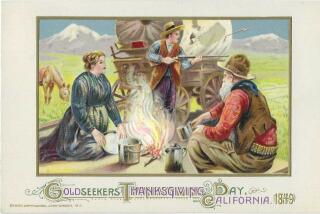E. B. WHITE: SOMEONE TO BE TRULY GRATEFUL FOR
- Share via
Even with snow on the distant peaks, Christmas in Southern California has always seemed vaguely misplaced, like a visitor who arrives with the wrong clothes for the climate.
Christmas is snow, with miserable numbed feet to match, and the smell of wet wool, and eyes tearful with cold. My local memories are of warmth, even unseasonable warmth, and of elsewhere-born children setting presents aside to go out to the beach to celebrate the improbability of the weather. The holiday has its own rewards here: It has usually rained and the hills are green with an appropriate own promise of renewal and rebirth.
The Southern California weather does better with Thanksgiving. As I write, the day is dark gray and dank, and there are dead leaves on the lawn, a couple of them even aspiring to red, but all too sodden to fly even if there were a breeze. (The aroma of burning leaves, central to Eastern nostalgia, is pungent with catastrophe here, and I will do without it, uncomplainingly.)
It is the kind of morning that once would have declared there will be snow by mid-afternoon at the latest, out of the north and maybe not lasting, big, wet leaves soon melted, but a biting reminder that life is not as easy as Indian summer had beguiled you into believing.
Memories always flood in on holidays. The past is always somewhere else, and it seems particularly so here, because so many of us have our origins somewhere else. The pleasures and gratitudes of what is mingle with the pangs of what was.
I found myself thinking of E. B. White, that most New England of modern American writers for the most New England of holidays, and I got out my old, original edition of “One Man’s Meat,” bought when it was fresh off the press in 1942, the dust jacket frayed but intact and still declaring the price, $2.50. (Those were the days.)
The paper, which is not acid-free, is going yellow, but I think it will suffice me. Just in case, though, I am holding on to the new edition Harper & Row brought out a couple of years ago. I had thought he might have had a word or two about Thanksgiving itself up there on the farm in Maine, but if he did I missed it in a quick browse.
It had sometimes seemed to me that I knew these essays by heart, and yet I keep finding surprises, notions newly relevant, 40-odd years later, like reflections from a glass caught by the changing sun.
White had seen television at the New York World’s Fair in 1939, for example, and with a remarkable gift of ironic prophecy wrote several times about what it was likely to mean in our lives.
“When I was a child,” White wrote, “people simply looked about them and were moderately happy; today they peer beyond the seven seas, bury themselves waist deep in tidings, and by and large what they see and hear makes them unutterably sad.”
Television, he added, “will insist that we forget the primary and the near in favor of the secondary and the remote.” He may well have noted a few years ago the news story about some people who lived opposite a metropolitan fire that was being televised, and who chose to watch the televised images in preference to what they could see from their windows.
It is now hard to remember or to imagine a world without television, and on balance and despite all that is dispiriting and tawdry on it, it is hard not to be grateful that it exists, for its real powers to illuminate, inform and divert. But it is easy to agree that White was only too prophetic and that the transient electronic images have a way of coming between us and the primary and the near.
White’s death may have been the most melancholy event of the year for anyone who cares about the quality of prose and about neatness, aptness and originality of thought. One of his admirers shared with me a copy of a note she’d had from him. She had sent him a fan letter, confessing that it was years overdue.
“It may have been overdue,” White said, “but at least it wasn’t overwritten. Most of them are.” It’s a very New England reply, spare, precise, honest and cautionary.
On a gray Down East Thanksgiving time morning, it seems entirely appropriate to put E.B. White high among the honored memories. He celebrated, with eloquent simplicity, the pleasure of doing the tangible chores (the primary and the near) that derive from the larger and abstract gifts under which we live.
More to Read
Sign up for our Book Club newsletter
Get the latest news, events and more from the Los Angeles Times Book Club, and help us get L.A. reading and talking.
You may occasionally receive promotional content from the Los Angeles Times.










